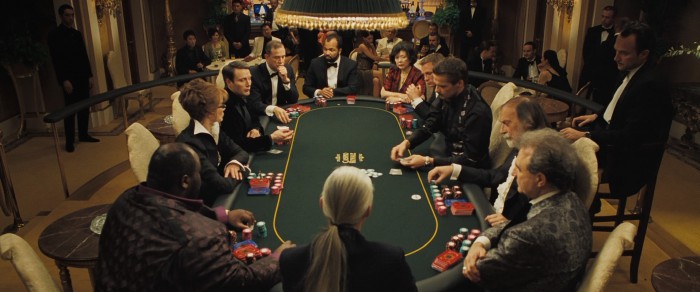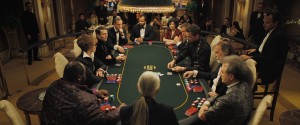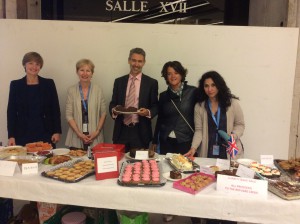21st September 2015 Geneva, Switzerland
Baked Goods

So Bob asked me to guest blog for him this week. There were two ways I could approach this; try and write like Bob, with jokes about cats and the trials of combining domesticity with working at the Human Rights Council. Or, cut my own path. So here goes:
I’m now in my 5th year working at the Human Rights Council, which has made me reflective about what I’ve learned over the last four years. I think there are 3 key lessons.
It’s a negotiation
Of course this is blindingly obvious, but it’s easy to forget when you’re huddled in the UN debating a contentious text. Any negotiation means compromise. Nobody gets everything they want, all of the time. Often the hardest thing for diplomats is working out what really matters to your government. I recently received pages of comments from London on a resolution I was covering, but then spent the next 24 hours working out what was essential, what was nice to have, and being frank, what was pure pedantry. In a former role I once complained about a counterpart’s inability to negotiate, at which point my manager said “he must know how to negotiate, he’s married after all!”. So it’s not rocket science, but flexibility and having a creative approach to language – it’s surprising how often delegations can get stuck on individual words – is key.
Personalities
Of course it would be much easier negotiating with a machine. I’m sure Google has already worked out algorithms for most sets of UN negotiations. But you can never completely remove emotions from diplomacy, particularly when discussing human rights. We are after all, human beings. One of the great strengths of the Human Rights Council is that you start to build up relationships with people and learn what makes them tick, what are the right buttons to push, or not push. I’m reminded of the poker scene in Casino Royale, where Daniel Craig is trying to outwit the Bond baddie at cards. Everyone has a “tell”, but can you work out what it is? And more importantly, do you know your own? Having led the negotiations on Syria for the last two years, I recently became very frustrated when a key delegate kept changing their position. But my preference for being very transactional and business-like clearly rubbed up one person the wrong way. A colleague took me to one side and said “Ian, my boss responds well to compliments”. A basic lesson that while I may not like flattery, others do.

Timing is everything
A UN resolution is like a perfectly baked sponge cake (you can tell I’m watching the Great British Bake Off on BBC). You need to assemble the right ingredients, work out what to throw into the mix and what to avoid, let the mix settle, leave it to bake and hopefully rise in support, and then judge the right time to whip it out of the oven and present to the wider Council. Returning to the Syria example, I’ve learned that if you start negotiations too early, diplomats will have too much time to fiddle over the ingredients, with the risk that the main sponsors spend too much time arguing amongst themselves and forget that there is a wider UN to influence. Conversely, starting late and trying to ram through a resolution, has led to negotiations collapsing in the past. Or, when you come to the final voting phase, delegates just simply haven’t had enough time to study your proposals. No one likes to be bounced. And sometimes you just need to be strategically patient. It took over two years to get a reference to the international criminal court accepted in the Syria text, but we did get there, taking advantage of a shift in positions in New York.
I’ll need to put all of the above into practice during the next week. This session of the Human Rights Council has a particularly tricky agenda. First, the long awaited UN report into human rights in Sri Lanka has just been published. So Bob is working hard to ensure a credible response to the UN report, in order to help the new Sri Lankan government transition from its past. Important UN monitoring mandates are up for renewal on Sudan, DRC and Cambodia. States are discussing how best to respond to the crisis in Yemen and the prospect of an emerging one in Burundi. On Syria, the current refugee crisis demonstrates that this issue runs much wider than the Human Rights Council. But neither can the Council remain silent on the root causes of mass migration – a fundamental disregard for human rights.
The thematic issues are no less tricky. We will support EU colleagues leading work to promote the abolition of the death penalty. There is also a new resolution on countering violent extremism, an issue which touches many countries, not least given the rise of ISIL. So it will be another busy session and we can expect some passionate debates.
Finally I wanted to give a mention to some colleagues, who reminded me of the “human” in the Human Rights Council. Stirred by recent images of the migrant crisis in Europe they decided to contribute in their own way by running a homemade cake stall at the UN on Thursday night and raised over £1000 for Syrian refugees. A British bake off that transcended borders for a few hours and helped remind us of what the UN is for.

Don’t worry Nicola, Pixie’s just fine. Though she could afford to cut down on her middle of the night miaowing.
good blog Ian and thanks for highlighting the noble gesture of the UK delegation with the fund raising for syrian refugees.
A very insightful and humorous insight into life as a diplomat!
Interesting question, Nicola. Unlike the UN Security Council, the Human Rights Council does not have sanctions at its disposal, and it can’t indict war criminals either. But it is the voice of moral authority and can shine a spotlight on the worst offences, thereby putting pressure on governments to change their approach and policies. The Human Rights Council can also act as a catalyst to get the rest of the UN to respond, which is critically important given the humanitarian consequences of millions of Syrian refugees.
A masterclass as good as any Mary Berry could produce. We should definitely incorporate this into our training programme.
A very interesting insight into how the UN works. I liked best the section on timing – it’s so easy to get it wrong.
very insightful post from somebody familiar with the behind the scenes. I, as part of the general public, often get frustrated by how little is accomplished through diplomacy, so it’s good to be reminded how much work goes into negotiations. Whilst slow and not perfect, it’s often the only way forward.
Ian has given a great insight into the fact that these fundamental resolutions of our times actually still depend upon the negotiation and diplomacy skills of a relatively small number of people. I like the cake analogy!
Enjoyed your musings, keep up the rewarding work at the mission. So has your baking improved after watching GBBO ??
Hi Ian – nice to get another perspective, although I am left wondering about the health of Bob’s cat who didn’t make an appearance. Hope she’s ok.
More seriously, best of luck with your efforts on Syria and refugee/migration issues this session. What sort of things do you think the Council should do next to lend its voice, if not teeth, to the current state of the crisis?